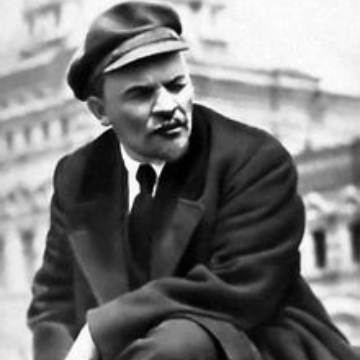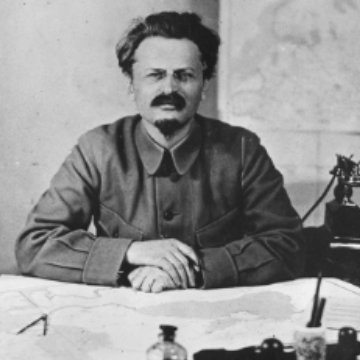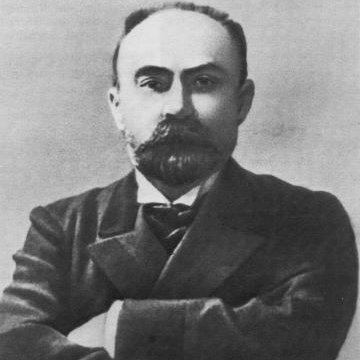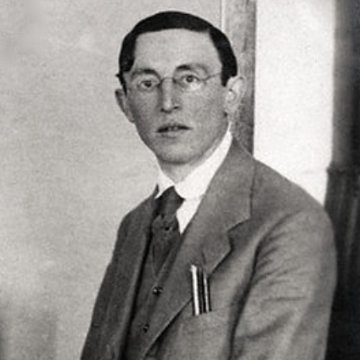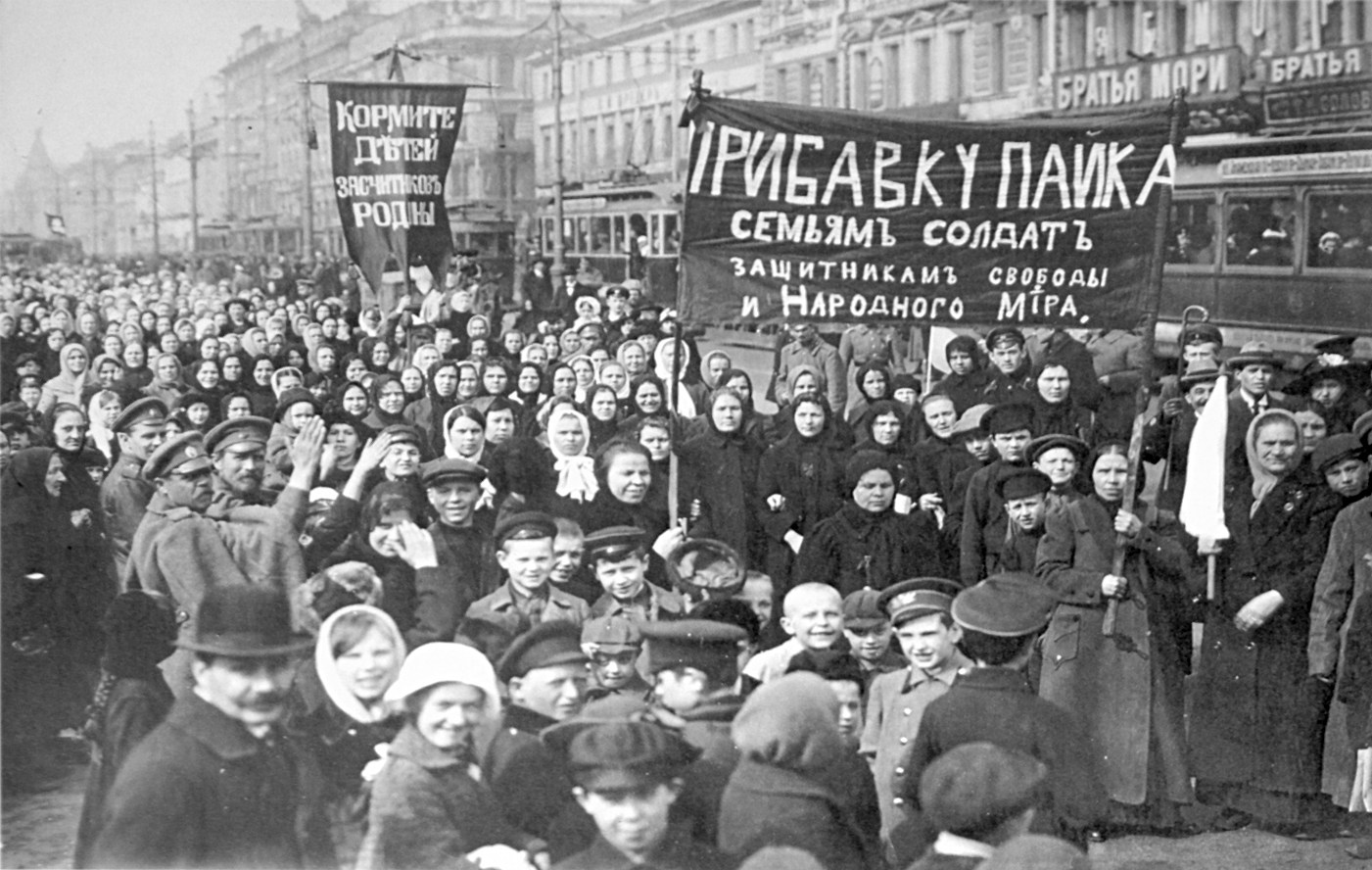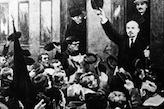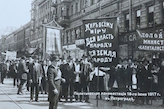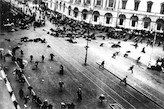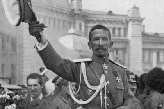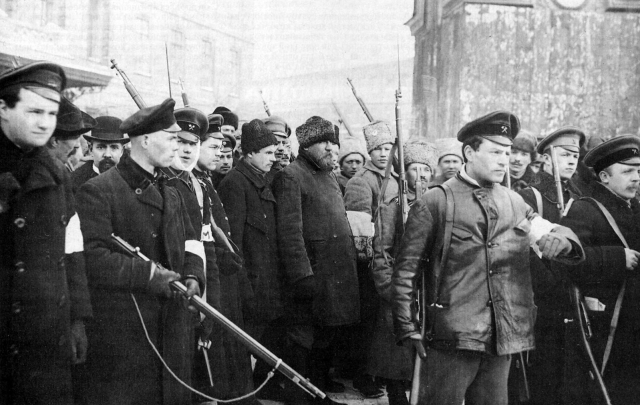Nationalisation of the Syndicates
Capitalism differs from the old, pre-capitalistic systems of economy in having created the closest interconnection and interdependence of the various branches of the economy. Were this not so, incidentally, no steps towards socialism would be technically feasible. Modern capitalism, under which the banks dominate production, has carried this interdependence of the various branches of the economy to the utmost. The banks and the more important branches of industry and commerce have become inseparably merged. This means, on the one hand, that it is impossible to nationalise the banks alone, without proceeding to create a state monopoly of commercial and industrial syndicates (sugar, coal, iron, oil, etc.), and without nationalising them. It means, on the other hand, that if carried out in earnest, the regulation of economic activity would demand the simultaneous nationalisation of the banks and the syndicates.
Let us take the sugar syndicate as an example. It came into being under tsarism, and at that time developed into a huge capitalist combine of splendidly equipped refineries. And, of course, this combine, thoroughly imbued with the most reactionary and bureaucratic spirit, secured scandalously high profits for the capitalists and reduced its employees to the status of humiliated and downtrodden slaves lacking any rights. Even at that time the state controlled and regulated production — in the interests of the rich, the magnates.
All that remains to be done here is to transform reactionary-bureaucratic regulation into revolutionary-democratic regulation by simple decrees providing for the summoning of a congress of employees, engineers, directors and shareholders, for the introduction of uniform accountancy, for control by the workers’ unions, etc. This is an exceedingly simple thing, yet it has not been done! Under what is a democratic republic, the regulation of the sugar industry actually remains reactionary-bureaucratic; everything remains as of old—the dissipation of national labour, routine and stagnation, and the enrichment of the Bobrinskys and Tereshchenkos. Democrats and not bureaucrats, the workers and other employees and not the "sugar barons", should be called upon to exercise independent initiative—and this could and should be done in a few days, at a single stroke, if only the Socialist-Revolutionaries and Mensheviks did not befog the minds of the people by plans for “association” with these very sugar barons, for the very association with the wealthy from which the "complete inaction" of the government in the matter of regulating economic life follows with absolute inevitability, and of which it is a consequence.[1]
Take the oil business. It was to a vast extent “socialised” by the earlier development of capitalism. Just a couple of oil barons wield millions and hundreds of millions of rubles, clipping coupons and raking in fabulous profits from a “business” which is already actually, technically and socially organised on a national scale and is already being conducted by hundreds and thousands of employees, engineers, etc. Nationalisation of the oil industry could be effected at once by, and is imperative for, a revolutionary-democratic state, especially when the latter suffers from an acute crisis and when it is essential to economise national labour and to increase the output of fuel at all costs. It is clear that here bureaucratic control can achieve nothing, can change nothing, for the "oil barons" can cope with the Tereshchenkos, the Kerenskys, the Avksentyevs and the Skobelevs as easily as they coped with the tsar’s ministers—by means of delays, excuses and promises, and by bribing the bourgeois press directly or indirectly (this is called "public opinion", and the Kerenskys and Avksentyevs “reckon” with it), by bribing officials (left by the Kerenskys and Avksentyevs in their old jobs in the old state machinery which remains intact).
If anything real is to be done bureaucracy must be abandoned for democracy, and in a truly revolutionary way, i.e., war must be declared on the oil barons and shareholders, the confiscation of their property and punishment by imprisonment must be decreed for delaying nationalisation of the oil business, for concealing incomes or accounts, for sabotaging production, and for failing to take steps to increase production. The initiative of the workers and other employees must be drawn on; they must be immediately summoned to conferences and congresses; a certain proportion of the profits must be assigned to them, provided they institute overall control and increase production. Had these revolutionary-democratic steps been taken at once, immediately, in April 1917, Russia, which is one of the richest countries in the world in deposits of liquid fuel, could, using water transport, have done a very great deal during this summer to supply the people with the necessary quantities of fuel.
Neither the bourgeois nor the coalition Socialist-Revolutionary-Menshevik-Cadet government has done anything at all. Both have confined themselves to a bureaucratic playing at reforms. They have not dared to take a single revolutionary-democratic step. Everything has remained as it was under the tsars—the oil barons, the stagnation, the hatred of the workers and other employees for their exploiters, the resulting chaos, and the dissipation of national labour—only the letterheads on the incoming and outgoing papers in the “republican” offices have been changed!
Take the coal industry. It is technically and culturally no less “ripe” for nationalisation, and is being no less shamelessly managed by the robbers of the people, the coal barons, and there are a number of most striking facts of direct sabotage, direct damage to and stoppage of production by the industrialists. Even the ministerial Rabochaya Gazeta of the Mensheviks has admitted these facts. And what do we find? Absolutely nothing has been done, except to call the old, reactionary-bureaucratic meetings "on a half-and-half basis"—an equal number of workers and bandits from the coal syndicate! Not a single revolutionary-democratic step has been taken, not a shadow of an attempt has been made to establish the only control which is real—control from below, through the employees’ union, through the workers, and by using terror against the coal industrialists who are ruining the country and bringing production to a standstill! How can this be done when we are “all” in favour of the “coalition”—if not with the Cadets, then with commercial and industrial circles. And coalition means leaving power in the hands of the capitalists, letting them go unpunished, allowing them to hamper affairs, to blame everything on the workers, to intensify the chaos and thus pave the way for a new Kornilov revolt!
Notes
[1] These lines had been written when I learnt from the newspapers that the Kerensky government is introducing a sugar monopoly, and, of course, is introducing it in a reactionary-bureaucratic way, without congresses of workers and other employees, without publicity, and without curbing the capitalists! —Lenin


